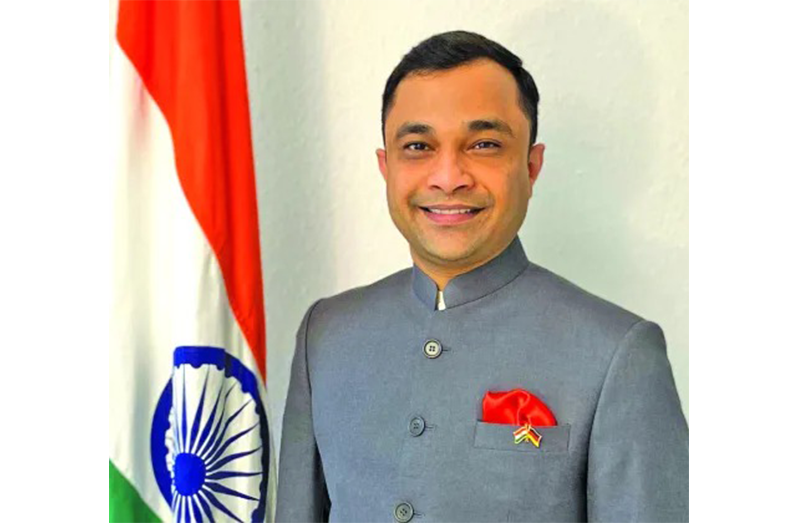By Dr Amit Telang, MD
THESE days, the moment you swipe your Smartphone, you will be bombarded with messages about herbal remedies and dietary supplements. Sometimes the list of avoidable items is so exhaustive that if you follow that list scrupulously, you will certainly lose your self-esteem if not actually your weight. It would eventually dawn upon you that practically everything in your kitchen and in your fridge is a potential health hazard- the root cause of your obesity and a plethora of metabolic diseases.
A step further and you would have a two-flanked army launching a brutal attack upon you- one proffering a list of healthy items and the other brandishing equally exhaustive list of unhealthy items. Confusingly enough, many of these items would make a miraculous appearance on both the lists leaving you completely baffled. Amidst the flurry of good morning, good evening, and other such absolutely meaningless posts on Whatsapp, these messages will not only populate your Smartphone but leave you a complete wreck in mind, minutes and money.
The Fitness Epidemic is no amusement or a ‘cool’ thing. Sermons on crash diets and food fads have become the modern-day Bible and Bhagawadgita. I call it an epidemic because its spreading like wild-fire and everyone believes that not joining the bandwagon is the biggest FOMO. Fitness is undoubtedly important, but the fitness epidemic is a ticking time-bomb. Imagine the impact on our bodies and brains, on pockets and prestige. But following the fitness regime without adequate scientific evidence might cause more harm than accruing any long-term benefit.
Since herbal remedies and home remedies constitute an important part of this ‘fitness epidemic’ it is important that the issue is approached systematically and a fair and frank discussion is initiated. Traditional medicinal systems, by nature, have evolved out of empirical evidence. It took generations to establish the precepts of their practical applications. It is not as simple as a ‘Turmeric shot’ or a ‘Detox Diet’. The concept of a balanced diet has always been at the centre of good and healthy lifestyle. Local produce has been a priority as it is a perfect balance of nature and nurture- experience over generations and due devolution to genetic constitution and environmental factors.
In traditional medicine, tradition plays an important role. But it is also characterised by the basic concept of medicine. From cultivating and harvesting to cooking, food is not merely a source of nutrition, but a medicine in a true sense. Everything in ideal proportion is healthy/nutritious and anything consumed in excess can become a poison. Our forefather approached food and nutrition systematically and evolved these basic tenets. Unfortunately, however, they remained confined to specific societies. With the advent of social media, some of this traditional wisdom is being rediscovered and widely circulated. Yet, a word of caution. They need to be tested in different populations, geographical areas and their impact on people of different genetic pools requires further examination and documentation. A one size fits all solution is neither advisable nor desirable.
We have always cherished our age-old traditions and especially the medicinal systems that have been subsumed under the acronym AYUSH. This traditional wisdom belongs to the entire humanity and alongside other traditional medicinal systems; they comprise our collective heritage. Nevertheless, there is a need of empirical research and documentation. It requires a global effort and collective contribution towards evolving a strategy that would effectively address the need for scientific approach towards a discipline that has to go beyond the realm of a ‘fitness epidemic’ to globally accepted protocols on traditional medicine.
The forthcoming 2nd WHO Global Summit on Traditional Medicine scheduled to be held in India from December 17-19, 2025, seeks to stimulate discussion on many such contemporary concerns and invoke interesting deliberations on this topic of global relevance. We remain engaged with Guyana and many of our CARICOM partners on this important topic that would have bearing on our evolving policies and shared pursuit of equitable, accessible, and evidence-based healthcare systems across the world.
Traditional medicine has long been a repository of cultural identity, community wisdom, and humanity’s collective knowledge of nature and wellbeing. The world has renewed its appreciation for integrative health approaches that combine traditional wisdom with modern medical science. The objective of the WHO Global Summit on Traditional Medicine is to strengthen research, enhance quality and safety standards, and ensure that the benefits of traditional medicine are available to all.
The theme of this edition of this Global Summit is ‘Restoring Balance: The Science and Practice of Health and Wellbeing’ would encourage global dialogue fostering meaningful international co-operation in the field of Traditional Medicine.
We look forward to welcoming experts from Guyana and all our partner countries from the Caribbean to participate and share their ideas and views and contribute towards the global effort towards creating a balanced, healthy and sustainable world. For further details related to the WHO Global Summit on Traditional Medicine, visit the website: https://tm-summit.org



.jpg)









